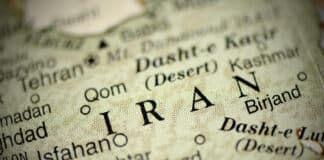South Africa’s foreign affairs ministry drew sharp criticism after posting photos Tuesday of Deputy Foreign Minister Anna Thandi Moraka signing a condolence book at the Iranian embassy in Pretoria. The images showed Moraka standing beside a large portrait of Ayatollah Ali Khamenei, Iran’s Supreme Leader.
The event raises serious questions, as South Africa’s government offered condolences without specifying the subject. The timing is especially controversial given that many of Iran’s top military officials were killed during Israel’s recent “12 Day War,” which involved Israeli strikes targeting Iranian leadership reportedly responsible for missile and terror attacks on Israeli civilians.
The ANC-linked government recently portrayed itself as maintaining neutral international relations, insisting the party’s positions don’t necessarily reflect official state policy. However, this public act of condolence seems to contradict that stance and highlights longstanding concerns about the close ties between the African National Congress and Tehran, including unverified claims of Iranian funding to the party.
Iran’s missile campaign during the conflict resulted in at least 28 deaths—27 Israeli civilians and one soldier—and caused thousands of injuries and widespread dislocation. Yet South Africa chose to publicly mourn Iranian losses while remaining silent on civilian casualties in Israel.
This move appears especially tone-deaf at a moment when global attention is focused on civilian suffering in Israel. It fuels distrust among conservative and pro-Israel voices, who see it as tacit approval of Iran’s Islamist regime and its aggression.
Critics argue that by signing this condolence book, South Africa’s government is legitimizing a hostile regime actively involved in terrorism. The optics are dangerous: a top government official publicly mourning figures associated with Iran’s leadership contradicts South Africa’s professed non-alignment and worst, offers moral support to a regime that endorses attacks on civilians.
In the past, South Africa has balked at associating directly with Iran, emphasizing a distinction between party and state. That distinction now appears insufficient amid public actions contradicting that narrative. The condolence book gesture risks damage to South Africa’s diplomatic credibility among Western democratic allies and human rights advocates.





